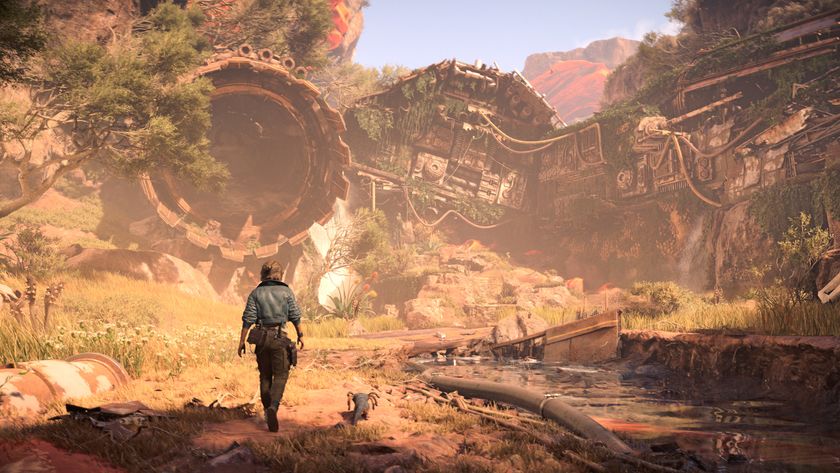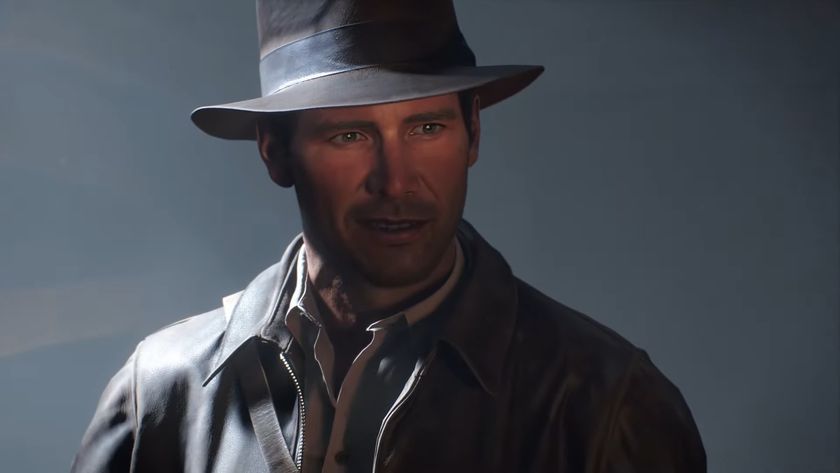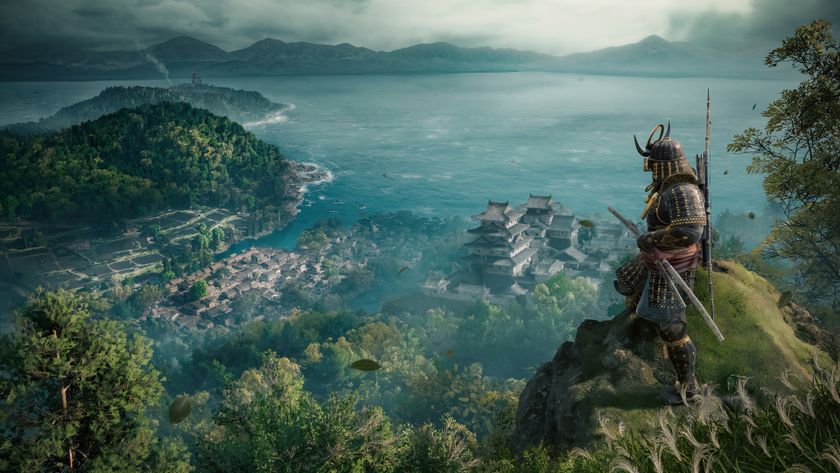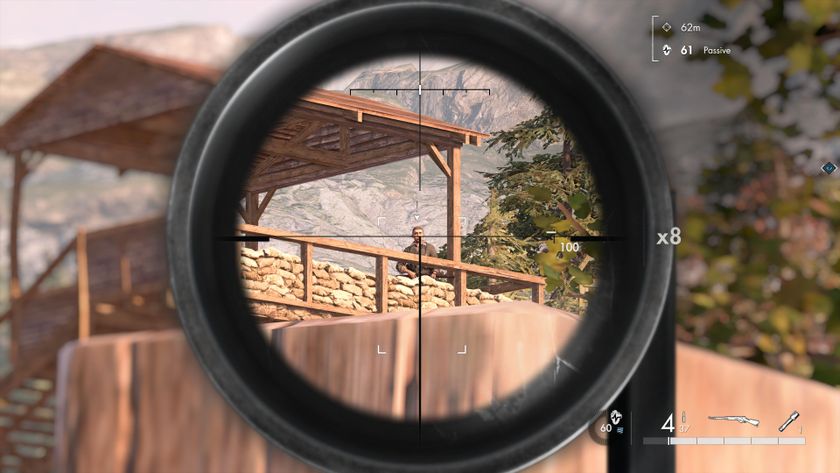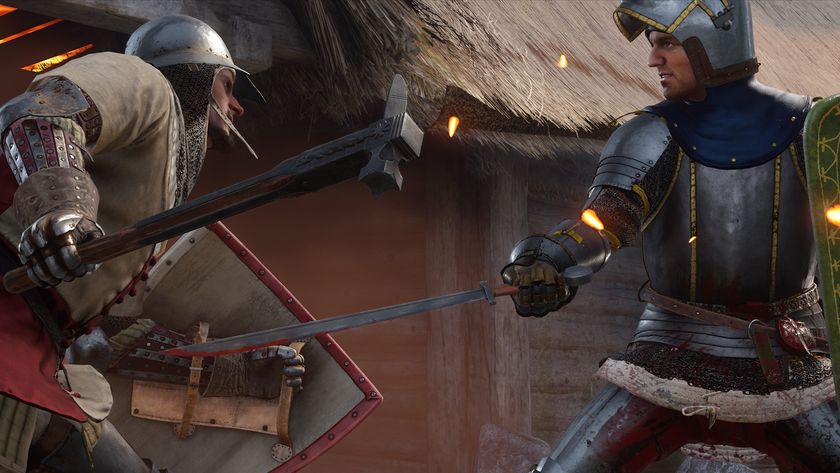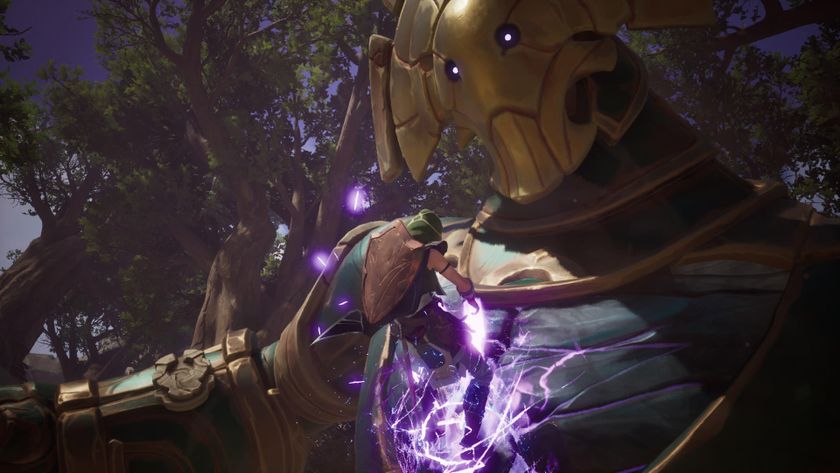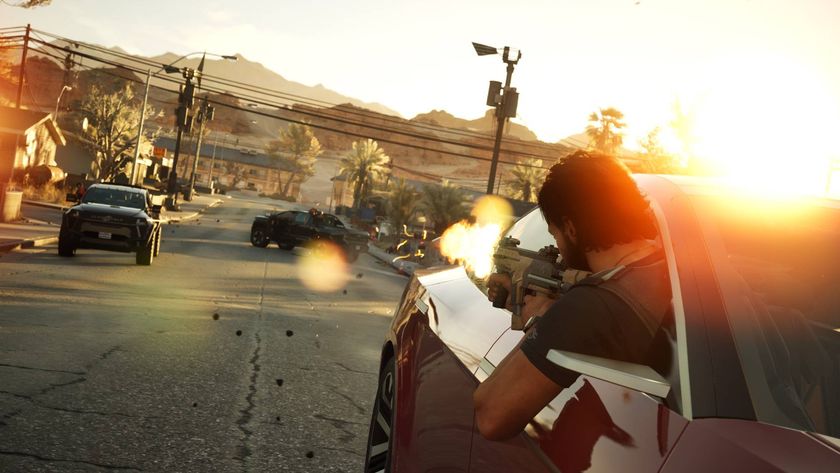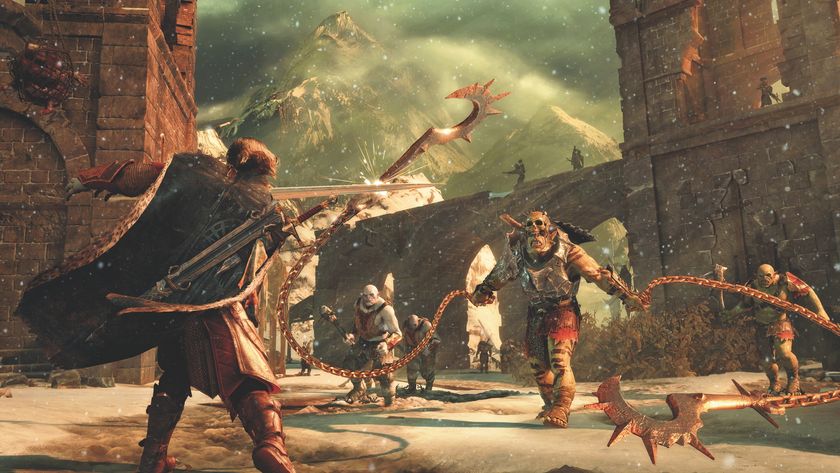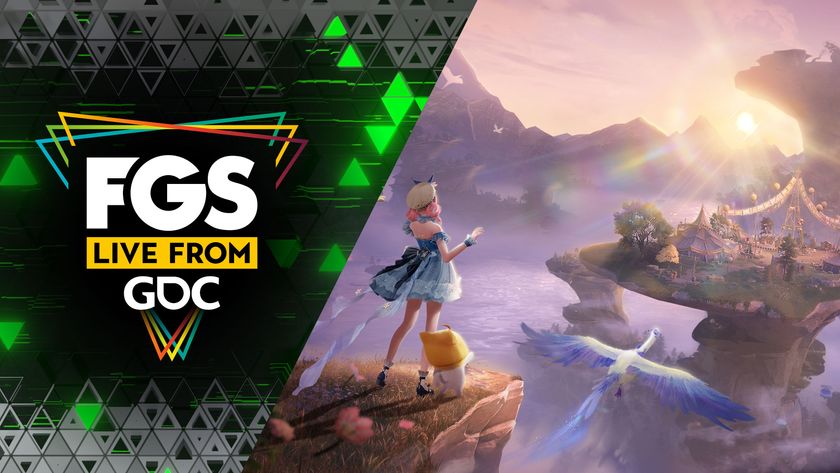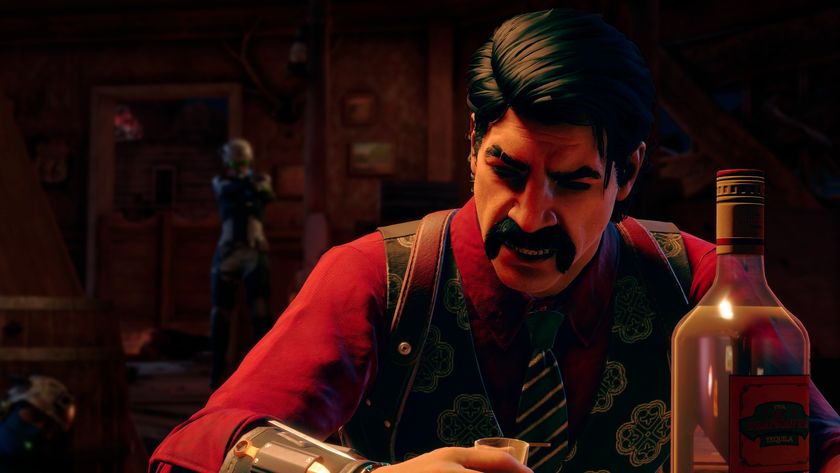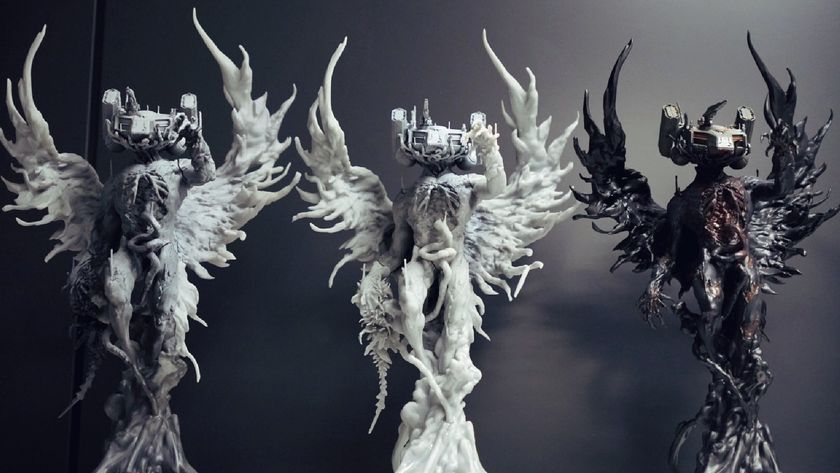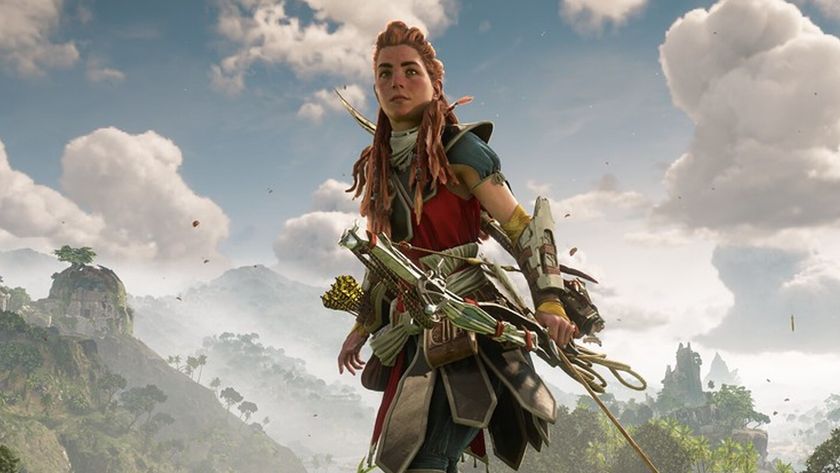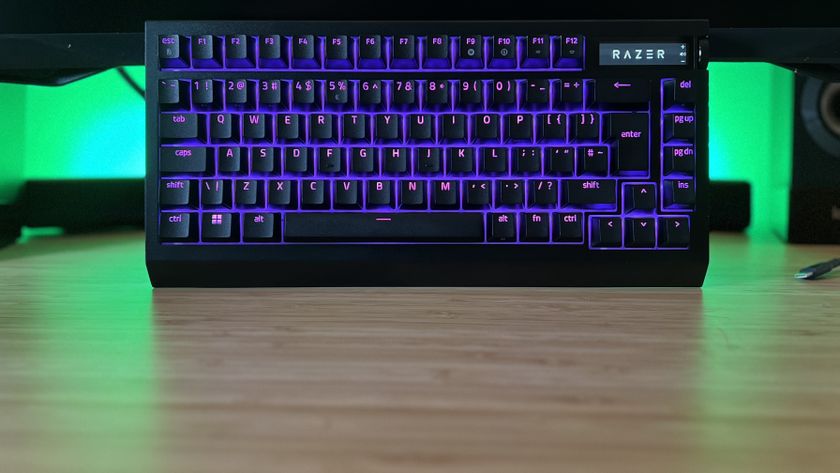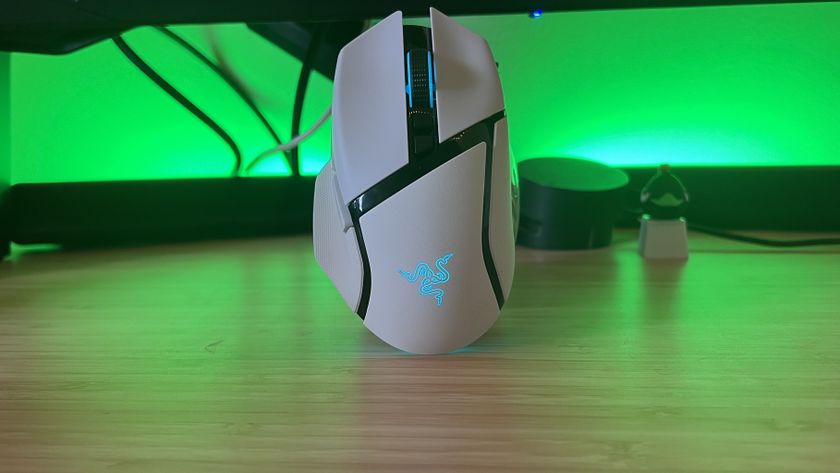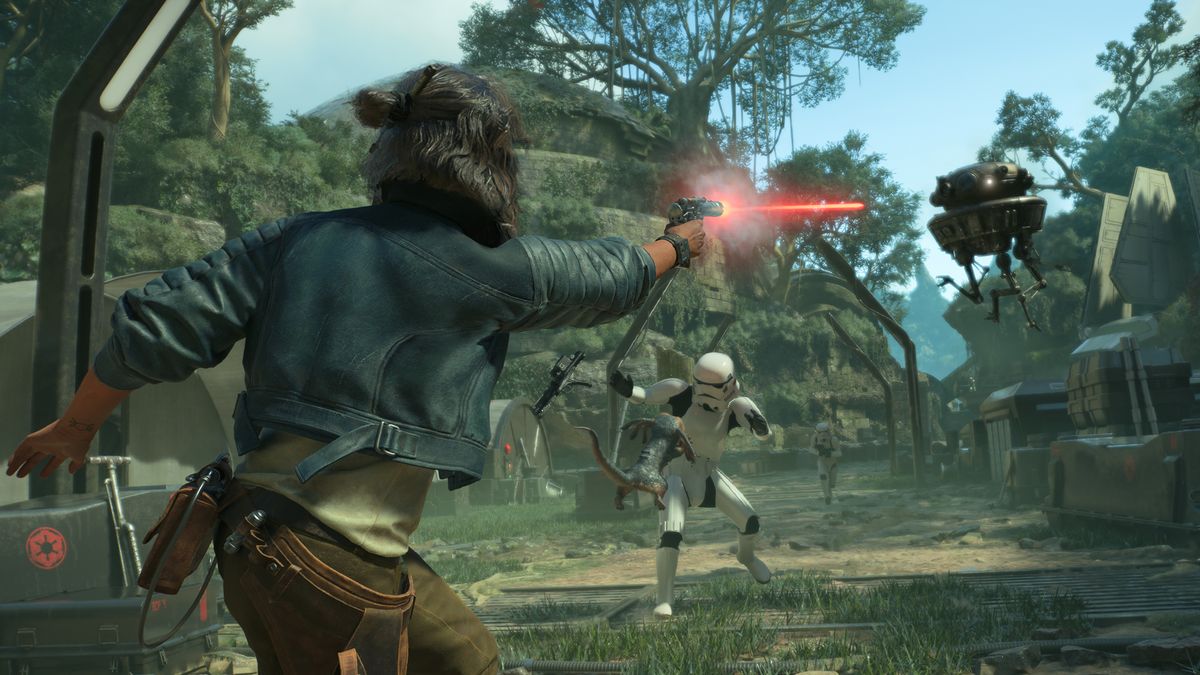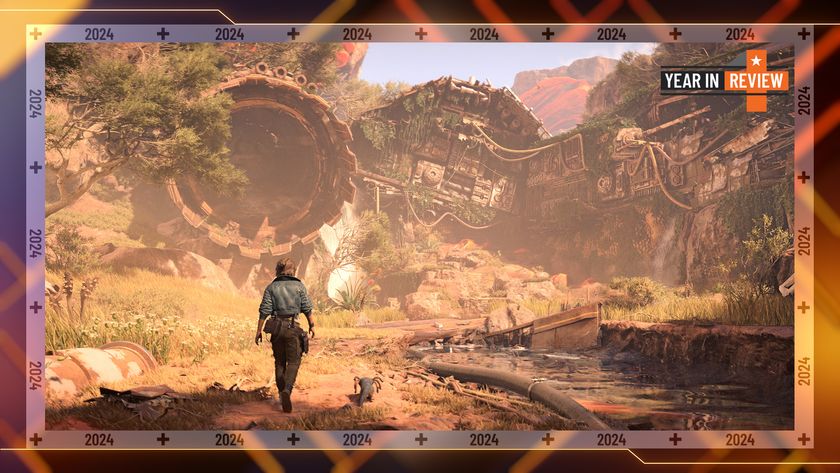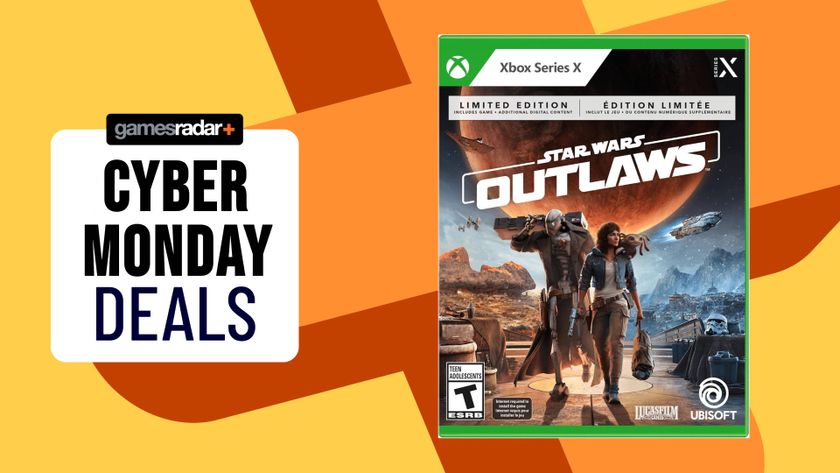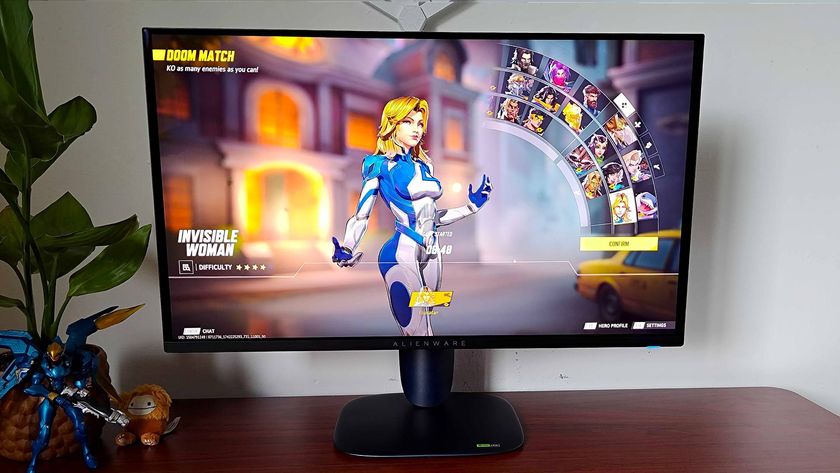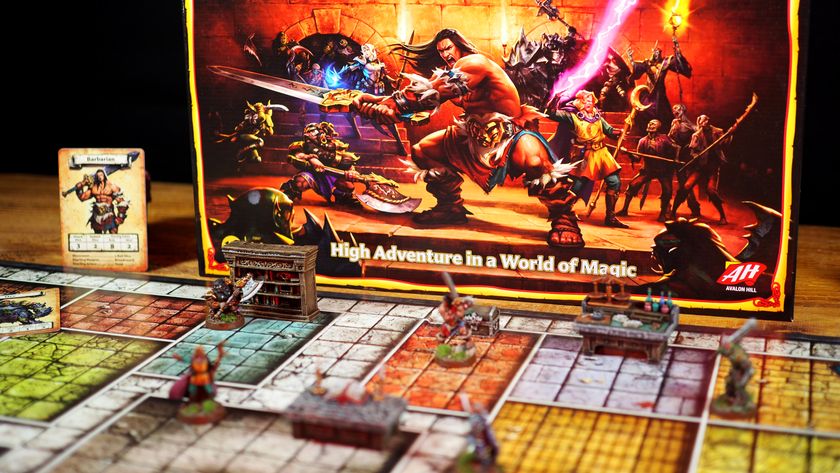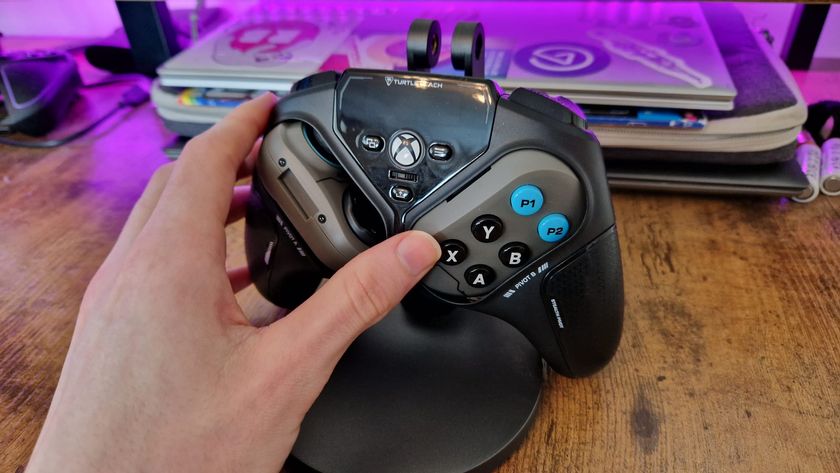12DOVE Verdict
Star Wars Outlaws is an exceedingly fun Star Wars game that's hindered by poor stealth systems and lacklustre mission design. Massive Entertainment establishes an incredible sense of place through its open worlds, accurately capturing the look and feel of the original trilogy of movies, but the experience falters the closer you stick to the critical path. If you've ever dreamed of becoming a scoundrel in a galaxy far, far away then you'll find a lot to like in Outlaws, and a lot more crawling through cramped ventilation systems than expected.
Pros
- +
Snappy combat
- +
Excellent atmosphere
- +
Smart reputation and progression systems
Cons
- -
Poor stealth systems
- -
Repetitive mission design
- -
Frustrating lockpicking and hacking minigames
Why you can trust 12DOVE
Don't get caught. That's been an underlying principle of the scoundrel way of life for decades now, ever since an exacerbated Han Solo tried to talk his way out of an encounter with Jabba the Hutt in (one of the versions of) Star Wars: A New Hope. The crime lord wants to know what sort of smuggler would drop his cargo at the first sign of an Imperial starship, and Solo's answer is why many have become so enamored with the character. He's a wild card willing to do anything to survive another day in a galaxy battling between light and dark forces, no matter the personal cost or reputational consequences to his actions.
Star Wars Outlaws does its best to render this fantasy into reality, but developer Massive Entertainment has misinterpreted elements of its appeal through an ailing contextual stealth system, unkind progression checkpointing, and frequently rigid objective parameters. Critical missions teeter between fantastical and frustration as a result, drawing attention from the litany of successes achieved elsewhere in the experience.
Release date: August 30, 2024
Platform(s): PC, PS5, Xbox Series X
Developer: Massive Entertainment
Publisher: Ubisoft
Don't get caught and don't raise alarms. Don't do this, and definitely don't do that. When Massive is dictating the pace of play the fantasy falls apart. Star Wars Outlaws doesn't appropriately communicate detection and visibility, not enough to support stealth as such a principal focus of the critical path. Main missions leave little room for you to exercise your own judgment, instead insisting that you infiltrate ventilation systems of Imperial starships and syndicate outposts. Get caught, start over at the cost of your patience and credits.
It's a shame, because if Han Solo and Lando Calrissian have taught me anything it's that figuring out what to do once you do get into trouble is all a part of the game for a scoundrel. And like any good scoundrel, you'll feel a desire to go quiet until it's time to go loud, no matter the situation. You'll want to try and charm your way past enemy personnel, dress up in ill-fitting costumes to avoid detection, and have the space to talk your way out of (and into) trouble. What we have here instead is a whole lot of vents, and an annoying lockpicking minigame to access them. Star Wars Outlaws exists in this weird space as a result; it's one of the best Star Wars games on the strength of its sense of place, but a bad stealth experience; understanding what you value more will ultimately tip you towards or away from this adventure.
One step at a time
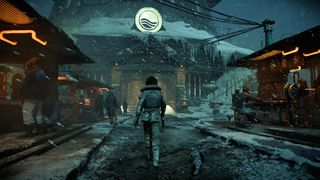
Kay Vess is a scoundrel in search of a quieter life. Star Wars Outlaws tracks the pursuit of that dream, and the dark paths that wait for those who blindly follow their intuition. An earned death mark is a death sentence, pushing Vess out of the only home she's ever known and into exotic new lands – Akiva, Kijimi, Tatooine, and Toshara. For planets like Kijimi and Tatooine, you're given freedom to explore wide environments that have always existed on the periphery of a camera lens; and in the case of Toshara, Massive demonstrates that it's more than capable of making additive contributions to the wider Star Wars universe.
These planets are microcosmic open worlds – lush, sprawling landscapes with pockets of civilization, challenges, and collectibles to encounter – that connect via stretches of explorable galaxy; a little drab, but free-flight is thrilling as Tie-Fighters screech overhead. Massive throws out the playbook honed by Assassin's Creed and Far Cry to great effect, leaving you free to wander by foot, by speeder, or by ship without any reliance on crow's nest cartography to progress across landscapes. Your journal fills with optional tasks as you accept contracts, stumble across locations, and overhear snippets of conversation whilst walking through beautifully-constructed cities.
Star Wars Outlaws is at its best when it leaves you well enough alone to soak in the atmosphere of these locales, authentically capturing the iconic visual aesthetic and terse tension inherent to populations externalizing the events of The Empire Strikes Back. Syndicates wrestle for control over territories, taking advantage of Imperial forces turning their attention to a resurgent Rebel Alliance. The Hutt Cartel is extorting moisture farmers on Tatooine, maybe you can help. The Pyke Syndicate is fixing Sabacc tournaments, perhaps you want in on that action. Crimson Dawn is a shadow in the corner of every cantina, lurking close as you lean at a bar watching a band play live on a stage in the back.
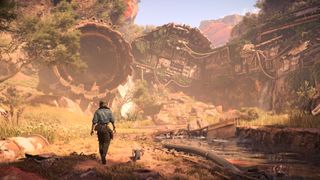
"You really do feel a part of a wider world, rather than a function of it"
Building and breaking uneasy relationships with syndicates is an area where Star Wars Outlaws shines. As your reputation grows, a light system of choice and consequence underpins every decision you make. This system works because of its simplicity; it's ever-present but never a burden, a smart way to reflect the dire circumstance Vess must navigate as she assembles a crew capable of pulling off an impossible heist.
Reputation management is authentic and organic, which is also true of character customization and progression. Experts discovered in your travels help refine your skill-set over time – Massive's decision to divest from funneling experience points through skill trees is liberating. Altering the efficiency of your blaster or the speed of your cruiser is similarly organic, with Vess bartering over parts to make steady improvements. The effect of these progressive design decisions means that you really do feel a part of a wider world, rather than a function of it.
Never tell me the odds
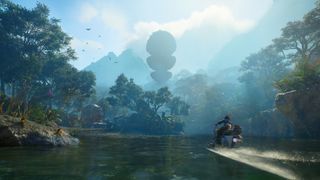
When Star Wars Outlaws isn't locking you into forced stealth scenarios, it's far snappier – combat is chaotic. A blaster may be considered an inelegant weapon for a more uncivilized age but it's a lot of fun to wield, sharp and punchy. Cycling through Plasma, Ion, and Power modules is easy enough, introducing some flexibility in your approach to crowd control. Your companion, Nix, is easily controlled too, giving you scope to distract or dispatch enemies as you focus your attention elsewhere. Adrenaline Rush fills over time as plasma bolts fizz through the air around you, letting you mark multiple aggressors and dispatch them with cinematic ease. It's in these moments that you remember Star Wars has plenty of potency when there isn't a lightsaber in sight.
Star Wars Outlaws has immaculate vibes, capturing the feel of existing in the Star Wars universe perhaps better than anything before it. Massive does a wonderful job recreating the '70s-inspired, lived-in style which defined the original trilogy; exterior and interior environments look the part, the atmosphere brought to life with authentic VFX and SFX, and a phenomenal performance from actor Humberly Gonzalez as Kay Vess acts as a suitable grounding into the adventure – doing enough to draw attention away from some surprisingly mediocre character models and animations which blight the supporting cast.
All told, Star Wars Outlaws is a compact open-world adventure that often succeeds in spite of itself. The sort of video game that doesn't hide its influences, opting instead to wield them to blunt any sharp edges that may turn even the most casual player away from enjoying a Star Wars adventure. Environment navigation has echoes of Uncharted, albeit without the polish typically associated with a Naughty Dog production. The way side stories unfurl through the open worlds has shades of Red Dead Redemption, although Massive never commits to intricate systemic design as a catalyst. The easy, atmospheric vibes remind me of Ghost of Tsushima. Gears of War's 'perfect reload' dictates combat flow, the way Vess contextually shifts around cover brings about memories of Quantum Break, and the Adrenaline Rush mechanic is a great revival of Splinter Cell's beloved Mark and Execute. A lot of different pieces assemble to show a Star Wars-themed picture.
But what I was reminded of the most while playing Star Wars Outlaws was the experience of sitting down with Mass Effect for the first time in 2007. A game that, despite its poor performance and flawed combat, really ignited the imagination. It wasn't until I took my first steps onto the Citadel with Commander Shepard that I realized I had been waiting all my life for Battlestar Galactica, Firefly, Star Trek to be made interactive – for an RPG to so convincingly satisfy the fantasy of stepping into a world that was alien to my own. I've sacrificed my time to Star Wars: Galaxies and The Old Republic, fallen in love with the 'Jedi' games in all their forms, and played countless other games set in this franchise. But it's Star Wars Outlaws that truly made me feel a part of this universe for the very first time, and that has to count for something – even if I hope to never see the inside of another Imperial ventilation system in my lifetime.
Disclaimer
Star Wars Outlaws was reviewed on Xbox Series X, with code provided by the publisher.

Josh West is the Editor-in-Chief of 12DOVE. He has over 15 years experience in online and print journalism, and holds a BA (Hons) in Journalism and Feature Writing. Prior to starting his current position, Josh has served as GR+'s Features Editor and Deputy Editor of games™ magazine, and has freelanced for numerous publications including 3D Artist, Edge magazine, iCreate, Metal Hammer, Play, Retro Gamer, and SFX. Additionally, he has appeared on the BBC and ITV to provide expert comment, written for Scholastic books, edited a book for Hachette, and worked as the Assistant Producer of the Future Games Show. In his spare time, Josh likes to play bass guitar and video games. Years ago, he was in a few movies and TV shows that you've definitely seen but will never be able to spot him in.
